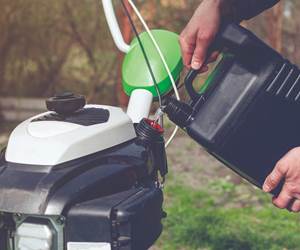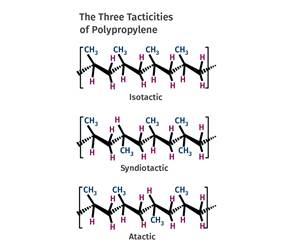Resin Prices Rise in Mid-September
Harvey helps push up PP, PE, PS, PVC and PET pricing.
By mid-September, unlike the previous month at that point, it was clear that prices of all commodity thermoplastics were firm-to-up and the post-Hurricane Harvey impact was central to this movement. This, according to the latest weekly PetroChemWire (PCW) reports on PP, PE, PS, PVC and PET, as well as from the most recent market update of The Plastics Exchange. The key takeaways:
● PE: PCW Senior Editor David Barry reported that spot PE prices were flat-to-higher as supply availability continued to take priority over cost in many market segments. He identified the blow molding HDPE, injection molding HDPE, and LLDPE hexene as being the most supply challenged. “Large blow molders and distributors were seen scouring the market for spare inventory to cover shortfalls due to supplier force majeure declarations.”
Michael Greenberg CEO of Plastics Exchange, The reported that spot PE prices were transacted at 2-5¢/lb higher. In the contract market, having implemented a 3¢/lb increase in August, suppliers had issued a 4¢/lb increase effective between Sept. 1 and Oct., depending on the supplier, and an additional 3¢/lb increase was issued by one supplier, effective Oct. 15.
● PP: PCW’s Barry reported that PP prices were up but spot activity was extremely limited as supply concerns dominated the market. “A wide spread in prices, as much as 10¢/lb, was seen for similar materials coming from different sources.”
Confirming the tightness, Greenberg noted that spot PP, where it could be found, was generally transacted at 2-3¢/lb higher. In the contract market, some PP suppliers were out with a 3¢/lb increase in addition to any change in the monomer. Greenberg ventured that September PP prices would reflect the full pending propylene monomer contract price increase of 7¢/lb plus the 3¢/lb. Moreover, both sources confirm industry talk that further monomer price hikes were likely for October.
● PS: PCW’s Barry reported that PS spot prices were flat and no shortages were seen in the market. However, suppliers continued to implement a 3¢/lb increase for September, with one supplier having issued an additional 3¢/lb, effective Oct. 1. He noted that styrene monomer production has begun to improve but is not yet back to normal.
● PVC: PCW Senior Editor Donna Todd reported that suppliers were out with a 5¢/lb increase, effective Oct. 1. She noted that several force majeure declarations, mostly issued on Aug. 31, were still in force: Formosa on all of its PVC grades and all dry-blend rigid PVC compounds; OxyVinyls on PVC; and Olin on VCM shipments. “The PVC market continued its recovery from Hurricane Harvey this week. At the same time, numerous PVC pipe plants in Florida and Georgia were restarting this week after shutting down last weekend due to Hurricane Irma. Todd reported on recovery inroads by week’s end.
Formosa’ Point Comfort facility is back online and producing PVC at reduced rates. The VCM plant that had been down for repairs before the storm was expected to be delayed coming back up—and restart timing was uncertain.
OxyVinyls/Mexichem joint venture ethylene cracker at Ingleside had restarted as had its joint venture VCM plant at Corpus Christi, co-owned with Marubeni. No word was forthcoming on whether the company’s VCM units at Deer Park and LaPorte had restarted. Its PVC plants in Deer Park and Pasadena were running at reduced rates last week using VCM in inventory.
Shintech’s PVC plant in Freeport was reported to be running, though possibly at reduced rates as it VCM supplier, Olin, had declared force majeure.
There was still no timeline from Arkema for restarting its Crosby facility that produces organic peroxide used in the polymerization of PVC.
● PET: Xavier Cronin, PCW editor for The Daily PET Report and Weekly Recycled Resins Report, reported on Sept. 18, that domestic bottle-grade PET resins prices stood firm at 67-69¢/lb railcar delivered. Spot PTA for delivery to some domestic PET plants remained tight due to the trickle effect of Alpec halting PTA deliveries to M&G plants in Mexico and Brazil.
Related Content
How Compression Ratio Impacts Extruder Performance
Let’s investigate how compression ratio affects performance of an extruder processing LLDPE.
Read MoreApril 2025: Mixed Bag for Prices of Volume Resins
The end of the first quarter marked higher prices for polyolefins and relatively flat pricing for nearly all other resins.
Read MorePolyethylene Fundamentals – Part 4: Failed HDPE Case Study
Injection molders of small fuel tanks learned the hard way that a very small difference in density — 0.6% — could make a large difference in PE stress-crack resistance.
Read MoreFundamentals of Polyethylene – Part 5: Metallocenes
How the development of new catalysts—notably metallocenes—paved the way for the development of material grades never before possible.
Read MoreRead Next
Lead the Conversation, Change the Conversation
Coverage of single-use plastics can be both misleading and demoralizing. Here are 10 tips for changing the perception of the plastics industry at your company and in your community.
Read MoreFor PLASTICS' CEO Seaholm, NPE to Shine Light on Sustainability Successes
With advocacy, communication and sustainability as three main pillars, Seaholm leads a trade association to NPE that ‘is more active today than we have ever been.’
Read MoreBeyond Prototypes: 8 Ways the Plastics Industry Is Using 3D Printing
Plastics processors are finding applications for 3D printing around the plant and across the supply chain. Here are 8 examples to look for at NPE2024.
Read More

























